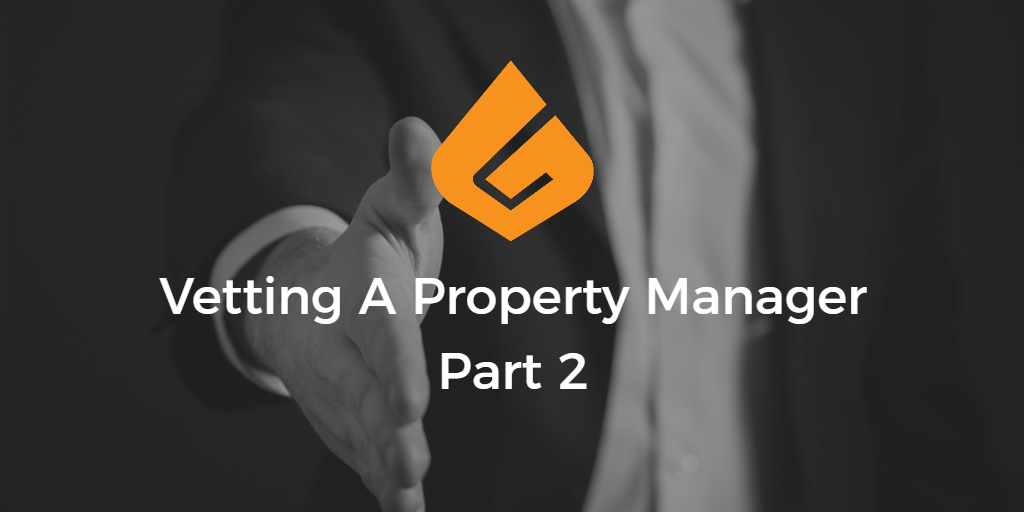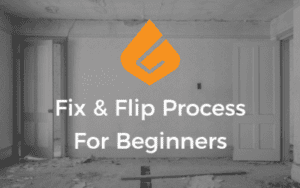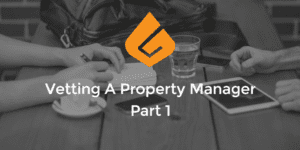Continuance from Part 1
We left off last time just talking about, do you work out payment plans, but I just want to start again with just letting people know this is all about the up-front expectation, and a lot of these questions are not a right or wrong answer.
12. WHAT IS YOUR EVICTION PROCEDURE?
Do you do cash for keys, what are attorney costs. If it’s a non-contested or if it’s a contested eviction, just understand what that procedure looks like and know what that person, how that manager, is going to operate during this time.
13. HOW LONG DOES EVICTION TAKE, START TO FINISH

14. WHAT ARE MANAGEMENT FEES?
Obviously you want to know what the management fees are. Typically I’m seeing somewhere between 8 and 10 percent. I think those are all pretty reasonable for our clients, and then placement fees. A lot of times it’s half of the first month’s rent for placement. I do know that for our rent-to-owns, they do charge a full month’s rent because it takes a little bit more time to get that in place.
What are maintenance fees? And maintenance fees to me means, “Well, how much are you going to charge me over and beyond what the contractors charge us? Is there a markup? Are your own guys doing maintenance?” So how is that working out, and then is there other fees. A lot of property managers have a renewal fee, and you want to just make sure that you know up front and you agree to it.
Just make sure that you understand that and know what those fees are. Do we need to get an attorney to write things up at certain points? Every state is going to be different, so dig into that. If you know some more specific questions, that’s great, but these are the questions that I ask.
15. WHAT ARE YOUR MAINTENANCE PROCEDURES?

16. REPORTS
The next question is, “How do you do your owners’ distributions and monthly and yearly reports?” The last guy I asked, he told that they disburse on the 10th and they use the third-party system, and it shows up in their account on the 15th. That’s just an example of what that looks like.
I also ask them if they have a sample of what that looks like, do they have a sample of what their owner distribution looks like, and then maybe they can go over it with me in the meeting to help me understand this and explain this. Sometimes this is one of the confusing things. When you get the statements, people don’t know how to read them. Just make sure that you have that. Then obviously you want to know how often they send them and if they’re getting monthly reports, yearly reports, all that stuff, so just make sure you ask the question.
17. EXPENSE DECISIONS MADE WITHOUT OWNER’S CONSENT
Typically this is going to be a dollar amount. Obviously as an owner, you don’t want to know everything. It’s just going to stress you out, and trust me, I don’t want to know. At the end of the month, yes, if I get a bill, “Ooh, that’s not really the best, that’s not good this month,” but really you don’t want to know if they have to replace a toilet. I mean, at least I don’t want to, so typically there’s a dollar amount here placed on this. The last guy I asked was anything under $250, so if it’s under $250, it’s written up in the management agreement that the manager’s just going to make it happen.

18. GENERAL DECISIONS MADE WITHOUT OWNER’S APPROVAL
What decisions need owner’s approval? I just dig in a little bit harder here, so what decisions get made without the owner’s approval, and this could go all the way up to what tenant they pick. It could go to what they charge for rent. Some people just leave it all the manager’s decision. Some people want a discussion every time. You just want to let them know, and then ask them how it’s carried out.
If there’s a maintenance issue, how does that get carried out and how does that get billed back to you, and how does the whole system work? Again, you’re focusing on the processes that they have, and focusing to make sure that they have systems that you like and that you understand. That way, you’re not six months into this thing, thinking that you don’t know what’s going on.
19. HOW LONG IS TENANT PLACEMENT?
This last guy I had was two weeks but it’s a little seasonal, and so he let me know that sometimes during the year it’s going to take a little bit longer. I know typically in my area, anytime between November 15th and January 15th is a really bad time to find a tenant. I would expect houses to sit a month, maybe even six weeks during that time of the year, but most of the rest of the year you can typically get them moved. You have New Year’s, you’ve got Christmas, you’ve got Thanksgiving, and everybody’s shopping and people don’t want to move during that time.
Even January for us is normally a little colder, but I’ve had a lot better luck renting places out in January than I have in December or November even. Is there an up and down period of time? I think most parts of the country, the spring is the best time to place a tenant, and a lot of it has to do with a lot of people that are renting are getting tax returns during that time of the year. Just understanding that sometimes that’s what’s keeping people from moving, is they don’t have enough money for a down payment or they don’t have enough money for security plus to move and all this other stuff.
20. HOW LONG IS TURNOVER WHEN A TENANT MOVES OUT?

Are they going to be in there the day that people move out, cleaning it out? How quick are they going to be able to get any repairs done that need to be done, get it marketed, back up on the market and so on and so forth?
21. WHAT ARE YOUR MOVE-IN PROCEDURES?
Do you have inspections where the tenant fills out a walkthrough sheet?” That’s what this question’s about, so what kind of move-in procedures do you have. I think this is a very important thing that the property manager should have. They ought to have some kind of procedure that they can track down the road, that this person moved in, this is how good a shape this place was in.
22. WHAT ARE YOUR MOVE-OUT PROCEDURES?
When they move out, is there instructions to drop off the keys? The process of turning the power off or the water, or getting it turned over to your name. Do you do an inspection when you go out? When the tenant moves out, do you do an inspection with the house? Do you make them sign the inspection?”
If it’s just a straight rental, you have a security deposit to worry about. If it’s a rent-to-own you may not, so just make sure you understand that. Do they let the owners know what work needs to get done on every turnover? How do they work through that is something else that you want to make sure that you know. Just, “What kind of move-out procedures do you have,” and then from there, “What kind of procedures do you have to let the owner know what needs to be done and how quick can you get that done?”
23. WHAT AREAS DO YOU MANAGE IN?
You want to know if they’re going to go in counties or cities or if they’re really just centrally located, because you want to know in the future if you get other deals, where they manage.
24. HOW LONG HAVE YOU BEEN IN BUSINESS?
There’s a really good reason on why you want to know that. You want to know if this guy’s a newbie. You want to know if this guy’s been in business for 30 or 40 years, and property management has changed a lot in the last 30 or 40 years, and they may not be all up to date on things that they need to do. If they’re not local to me, I’m probably looking for somebody that has at least a hundred rentals. I want to know that they have systems and processes and they’re not a newbie. I probably don’t want a newbie. If it’s a local person and I’m kind of helping self-manage it, I may not be as leery about that, but if it’s somebody that I’m going to go to a different state, I want them to be experienced and I want them to have some good processes and procedures.
25. HOW LONG DO YOU PLAN ON STAYING IN BUSINESS?
A lot of people, they may be in this for 30 years and they don’t really have a whole lot of lifespan left, and maybe you don’t want to put your eggs in this basket right now. Maybe you want to find somebody else that’s planning on staying in this business for another 10 or 20 years. If somebody’s about ready to retire, that’s probably not the person that I’m going to give my property management business to. This helps you also know if they enjoy doing what they’re doing. They’re going to kind of give you some hints here. The guy might say, “Well, as soon as I can get out of this job.” That’s probably not the guy you want.
26. WHAT IS YOUR NORMAL VACANCY RATE?
Vacancy is when houses aren’t rented, when people aren’t in the houses.
27. WHAT IS YOUR VACANCY RATE NOW?

Then also kind of dig into that too, because if you’re buying from a typical turnkey provider, you may be buying in B neighborhoods or A-minus or C-plus, and better neighborhoods. The last guy I talked to, he had a 5 percent vacancy rate and a normal 8 percent vacancy rate, but he said that most of those are normally in those lower ranges. It’s easier to keep them rented and not have the vacancies in the better area, so drill down in that.
In Conclusion
After you have the meeting with somebody, I would create a to-do list. Go over what you’re thinking about doing. Go over what you thought you could expect, and lay out your vision to the property manager, and then just let them talk. Let the property manager tell you his story if you need to. Try to get the know the property manager.
I’m the kind of person that I always want to focus on value. What kind of value can maybe you bring to the property manager? Obviously you’re hiring the property manager because you’re expecting him to bring value to you, but I think we’ll go a long way in life if we’ll try to add value to the property manager as well.



